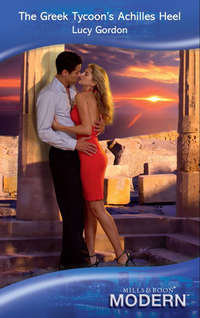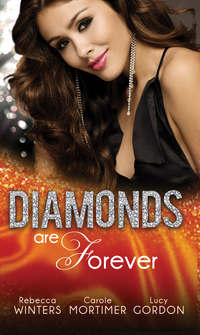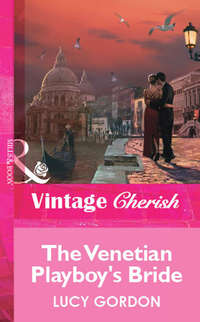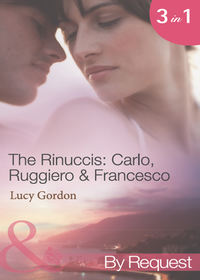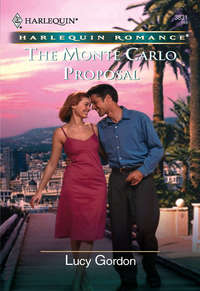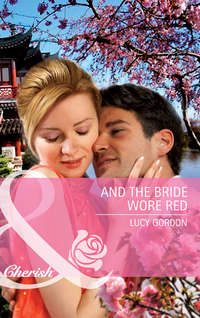
Полная версия
Farelli's Wife
An unsettling playback had begun in Joanne’s head. This was the very room she’d shared with Renata when she’d first come here. There were still the same two large beds, and a roomful of old-fashioned furniture. As with the rest of the house the floor was terrazzo, the cheap substitute for marble that Italians used to keep buildings cool.
The floor-length windows were still shielded from the sun by the green wooden shutters. Celia drew one of these back, and opened the window so that a breeze caused the long curtains to billow softly into the room. Joanne went to stand there, looking out over the land bathed in the setting sun. It was as heartbreakingly beautiful as she remembered it, the Italy of her dreams, blood-red, every colour more intense, every feeling heightened.
She tried on the dress. It was dark, made of some thin, cheap material, and it hung loosely on her slender frame, evidently made for someone wider and shorter. It was a pity, she thought, that Franco hadn’t kept some of Rosemary’s clothes, but, after all, it had been over a year.
And then, with a prickle up her spine, she remembered the words he’d exchanged with Celia. And she suddenly understood that he did, indeed, have some of Rosemary’s clothes, and Celia had wanted to fetch them, and Franco had forbidden it.
She went down to find Nico waiting for her at the foot of the stairs. After the initial confusion he seemed less disturbed than anyone at seeing his mother’s image, and Joanne blessed the instinct that had made Rosemary bring him to England. Clearly he remembered her from that visit.
He proved it by holding up a colouring book she’d given him. ‘I’ve done it all,’ he said. ‘Come and see.’
He seized her hand and pulled her over to a small table in the corner. Joanne went through the pages with him, noticing that he’d completed the pictures with a skill unusual in children of his age. He had a steady hand, taking colours up to the lines but staying neatly within them in a way that suggested good control. It reminded her of her own first steps in colouring, when she’d shown a precision that had foreshadowed her later skill in imitating.
When they’d been through the book Nico shyly produced some pages covered in rough, childish paintings, and she exclaimed in delight. Here too she could see the early evidence of craftsmanship. Her genuine praise thrilled Nico, and they smiled together.
Then she looked up and found Franco watching them oddly. ‘Nico, it’s time to wash your hands for supper,’ he said. He indicated the pictures. ‘Put everything away.’
‘Yes, Papa,’ Nico said, too docilely for a child. He tidied his things and went upstairs.
‘It’s strange to find the house so quiet,’ Joanne said wistfully. ‘When I first came here there were your parents and Renata, with everyone shouting and laughing at the same time.’
‘Yes, there was a lot of laughter,’ Franco agreed. ‘Renata visited us recently, with her husband and two children. They made plenty of noise, and it was like the old days. But you’re right, it’s too quiet now.’
‘Nico must be a lonely little boy,’ Joanne ventured.
‘I’m afraid he is. He relies on Ruffo a lot for company.’
‘Is Ruffo still alive?’ she asked, delighted.
Franco gave a piercing whistle out of the window. And there was Ruffo, full of years, looking vastly wise because the black fur of his face was mostly white now. At the sight of Joanne he gave a yelp of pleasure and hurried over to her.
‘He remembers me. After all this time.’
‘He never forgets a friend,’ Franco agreed.
She petted the old dog with real pleasure, but she also knew she was using him to cover the silence that lay between herself and Franco. She began to feel desperate. She’d known that Franco would be changed, but this grave man who seemed reluctant to speak was a shock to her.
‘So tell me what happened to you,’ he said at last. ‘Did you become a great artist?’
His words had a faint ironical inflection, and she answered ruefully, ‘No, I became a great imitator. I found that I had no vision of my own, but I can copy the visions of others.’
‘That’s sad,’ he said unexpectedly. ‘I remember how badly you wanted to be an artist. You couldn’t stop talking about it.’
It was a surprise to find that he recalled anything she’d said in those days.
‘I have a good career. My copies are so perfect that you can hardly tell the difference. But, of course,‘ she added with a sigh, ‘the difference is always there, nonetheless.’
‘And do you mind that so much?’
‘It was hard to realize that I have no originality.’ She tried to turn it aside lightly. ‘Doomed to wander for ever in someone else’s footsteps, judged always by how much I echo them. It’s a living, and a good one sometimes. It just isn’t what I dreamed of.’
‘And why are you in Italy now?’
‘I’m copying some works for a man who lives in Turin.’
‘And you spared us a day. How kind.’
She flushed under his ironic tone. Franco plainly thought badly of her for keeping her distance, but how could she tell him the reason?
‘I should have called you first,’ she began.
‘Why should you? My wife’s cousin is free to drop in at any time.’
She realized that his voice was different. Once it had been rich, round and musical. Now it was flat, as though all the music of life had died for him.
A harassed-looking girl came scurrying out of the kitchen carrying a pile of clean plates, pursued by Celia’s voice bawling instructions. The girl fled outside and began laying plates on the table.
‘Despite the short notice Celia is preparing a banquet in your honour,’ Franco informed her. ‘That’s why she’s a little tense. My foreman and his family are eating with us tonight.’
‘I love to remember the meals we had under the trees.’
‘You were always nervous about the flowers hanging from the trellis. You said they dropped insects over you.’
‘You did that. You slipped a spider down the back of my dress once.’
‘So I did,’ he said with a slight smile. ‘That was to punish you for revealing to my mother that you’d seen me with a woman she disapproved of.’
‘I didn’t mean to betray you,’ Joanne protested. ‘It slipped out by accident.’
‘I paid for your accident. My mother slapped me and screamed at me. I was twenty-four, but that didn’t impress her.’
They shared a smile, and for a brief moment there was a glimpse of the old, humorous Franco. Then he was gone.
‘Why don’t you have a look around, while I wash up?’ he said. ‘You’ll find the house much the same.’
‘I’d already begun to notice that. I’m glad. This was a happy place.’
She could have bitten her tongue off as soon as the words were out. It was as if Franco were turned to stone. His face was like a dead man’s. Then he said simply, ‘Yes, it was happy once.’
He walked away, leaving her blaming herself for her own clumsiness. This visit was turning into a disaster. Franco had said his foreman’s family was eating with them ‘tonight’, which suggested that they’d been invited specially. Obviously her presence was a strain, and he needed some relief.
It had been madness to come here.
CHAPTER THREE
JOANNE wandered outside. The fierce heat of the day had subsided and a soft breeze had sprung up. At such times life at Isola Magia had always been at its most relaxed and contented, but now she could feel the growing tension. Even so, the beauty of the land struck her afresh.
Here was the terrace and the exact same place where Franco had nearly kissed her on that fateful night. Geraniums still hung from above, trailing in gorgeous purple majesty. A glance showed Joanne that it was the same plant that had flowered faithfully year after year, always putting forth the same beauty while life and death passed underneath.
There was the apple tree just under the window of the guest bedroom. Joanne had seen Franco stand beneath that tree on the night before his wedding, looking up at Rosemary’s window. His bride had come to the window and gazed down at him with her heart in her eyes, and neither had moved for a long time. Joanne had crept away, feeling that it was sacrilege to watch.
She tried not to be self-conscious at the glances she received, wondering whether people were staring at her face or the unflattering dress. It was a relief when Franco and Nico emerged from the house and indicated for everyone to gather around the table.
Nico slipped his hand into Joanne’s. ‘Can I call you Zia?’ he asked shyly, using the Italian word for ‘Aunt’. ‘I’d love that,’ Joanne said. ‘Will you show me where to sit?’
He led her to the table, and introduced her to everyone as ‘Zia Joanne’. Umberto, the foreman, was there, with his wife and three children. The family greeted her politely, but with the look of awe that she was beginning to recognize. Franco sat at the head of the table, and Nico placed her between his father and himself. Franco poured her a glass of wine. His manner was attentive, but his eyes didn’t meet hers.
As he’d said, Celia had whipped up a banquet in an amazingly short time, black olive pâté, spinach and ricotta gnocchi, and a delicious dish made of white truffles, the local speciality. It was washed down with the local wine.
Elise, Umberto’s wife, had worked in the vineyards when Joanne had been there eight years ago, and remembered her. She questioned her politely, and Joanne talked about her career and her work in Vito’s house. Franco spoke to her courteously, but she had the feeling it was an effort. Nico said little, but sometimes she turned and caught him smiling at her.
It was like floating in a dream. Everything that was happening was unreal. She knew every inch of this place, yet it was as though she’d never been here before. She knew Franco, yet he was a stranger who wouldn’t meet her eyes.
But then she looked up and found that he’d been watching her while she was unaware. And there was something in his eyes that wasn’t cold and bleak. There was despair and misery, reproach and dread; but also anger. For a moment his iron control had slipped and she saw that Franco Farelli was possessed by a towering, bitter rage.
Rage at what? At fate that had taken the woman he loved? At herself, for coming here and stirring up his memories?
She felt suddenly giddy. Heat rose in her, and she was transported back years to the last time she’d sat at this table, trying to hide her feelings for a man who didn’t love her. There was a roaring in her ears and she felt as though the world were spinning.
Then it all stopped. Everything was back in its right place. Franco was talking to someone else. It might all never have happened.
But the soft pounding of her blood told her that it had happened. Nothing had changed, and yet everything had changed. He was no longer the fierce stranger he wanted her to think, but a man at the limit of his endurance.
At last Umberto and his family departed. The sun had sunk below the horizon, leaving only a crimson lining on the clouds, and that too was fading.
Celia appeared bearing a small tray with a bottle of prosecco, a very light, dry white wine, that was almost a soft drink. Italians drank it constantly, and Joanne even recalled being offered a glass as she had waited to be served in a butcher’s shop.
Celia placed the bottle and glasses on the table, and added a little plate of biscuits that she set close to Joanne with an air of suppressed triumph. While Franco poured the wine she tasted one of the tiny biscuits, then checked herself.
‘Is something the matter?’ he asked.
‘I’m sorry, I can’t eat these. I’m allergic to almonds, and I’m sure I can taste them.’
Franco took a biscuit, tasted it, and frowned as he studied the sugar coating. To Joanne’s astonishment his face grew dark with anger.
‘Celia!’
The old woman came hurrying back. Franco asked her a question in Piedmontese, and Celia answered with a look of puzzled innocence. The next moment she backed away from his blast of cold fury, and hurried to snatch the biscuits from the table.
‘What happened?’ Joanne asked.
‘It’s nothing,’ he said curtly.
‘But you mustn’t be angry with poor Celia just because I didn’t like the food.’
‘It wasn’t that. Leave it.’
For the moment they’d both forgotten Nico, watching them with eyes that saw too much for a child. He moved closer to Joanne and whispered, ‘They were Mama’s favourite.’
Franco winced. ‘Yes. I don’t know what Celia was thinking of. They haven’t been served in this house since—for over a year.’
‘She must have thought that, since I’m Rosemary’s cousin, I might like the same things,’ Joanne said calmly, although she was feeling far from calm. She suspected what Celia was really thinking, and it was something far more eerie.
Franco seemed to pull himself together. ‘Doubtless she thought that,’ he agreed. He was very pale. ‘Nico, it’s time for bed.’
But at once the child squeezed closer to Joanne, smiling up into her eyes. Instinctively, she opened her arms to him, and he scrambled onto her lap.
‘Let him stay,’ she begged Franco. ‘We used to cuddle like this when Rosemary brought him to visit me.’
‘He was a baby then,’ Franco said, frowning.
‘He’s not much more now. He’s too young to do without cuddles.’
Franco sighed. ‘You’re right.’
Nico had dozed off as soon as he’d settled down, nestling against her. Joanne looked down tenderly at the bright head, and thought sadly of Rosemary who would never see her son grow.
‘He’s asleep already,’ she murmured.
‘He trusts you,’ Franco said. ‘That’s remarkable. Since his mother died he trusts nobody, except me.’
‘Poor little mite. Isn’t there someone around here who can be a mother to him?’
‘The servants make a fuss of him, but nobody can take his mother’s place. Ever.’
Joanne turned her head so that she could brush her cheek against Nico’s silky hair, and instinctively tightened her arms about him- Nothing was working out the way she’d thought. She’d been reluctant to see Franco again, fearing to be tormented by her old feelings. She hadn’t allowed for the lonely child, and the way he would entwine himself in her heart.
‘It’s time he was in bed,’ Franco said.
‘Yes,’ she said softly, rising with Nico in her arms. His head drooped against her shoulder as she headed for the stairs, and she smiled down at him tenderly.
Celia was upstairs, and darted away as soon as she saw her to open the door to Nico’s room. Together they undressed the sleepy child, and slipped him between the sheets. He put his arms about Joanne again, and she hugged him back, her heart aching for the little boy who’d gone without his mother’s embraces for so long.
‘Will you sing to me?’ he whispered.
‘What shall I sing?’
‘The song about the rabbit.’
For a moment her mind went blank. Then she remembered that Rosemary had written a little nonsense verse that she’d sung to Nico. Gradually the words came back to her, and she began to sing in a husky voice.
‘Look at the rabbit, scampering home.
See how his tail bobs, bobs, bobs as he runs.
It’s late and he wants his supper,
Then he’ll curl up and go to sleep.
And he’ll snore, he’ll snore, he’ll snore.’
Nico gave a small delighted chuckle. ‘Sing it again,’ he begged.
Obediently Joanne sang the little verse a second time, and then a third.
‘Again,’ he whispered.
From the corner of her eye she could see Franco standing in the doorway, keeping back, not to disturb them. He didn’t move or make a sound, but she was aware of him with every fibre of her being, even while she concentrated on the child.
Конец ознакомительного фрагмента.
Текст предоставлен ООО «ЛитРес».
Прочитайте эту книгу целиком, купив полную легальную версию на ЛитРес.
Безопасно оплатить книгу можно банковской картой Visa, MasterCard, Maestro, со счета мобильного телефона, с платежного терминала, в салоне МТС или Связной, через PayPal, WebMoney, Яндекс.Деньги, QIWI Кошелек, бонусными картами или другим удобным Вам способом.


